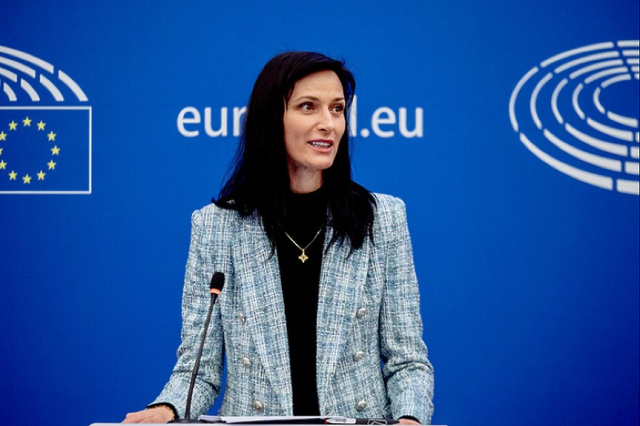
In a significant shift within NATO’s leadership, Mariya Gabriel is poised to become the new Deputy Secretary General of the alliance, according to sources cited by Club Z.
The development has been corroborated by diplomatic circles, indicating that Gabriel, a former Deputy Prime Minister, will take over the position currently held by Mircea Geoana.
As of October 1, NATO will undergo a comprehensive change in its civilian leadership. Mark Rutte is set to succeed Jens Stoltenberg as Secretary General, marking a noteworthy transition at the helm of the alliance.
This leadership overhaul signals a new strategic direction for NATO amid evolving global security challenges. Mircea Geoana, the current Deputy Secretary General and a Romanian national, is stepping down from his role to pursue a bid for the presidency in Romania.
Geoana is expected to announce his independent candidacy later this month, with early predictions favoring his success in the November election.
His departure creates a vacancy that Gabriel is set to fill, with her nomination reportedly nearing finalization. Both the United States and the United Kingdom have expressed their support for her candidacy.
The role of Deputy Secretary General is critical within NATO’s organizational structure. The Deputy assists the Secretary General in fulfilling their duties, steps in during their absence, and plays a key role in the alliance’s operations.
The Secretary General serves as the principal spokesperson and representative of NATO, overseeing the coordination of alliance activities, chairing the North Atlantic Council, and leading various committees, including the Defense Planning Committee and the Nuclear Planning Group.
Traditionally, the Deputy Secretary General’s position is held by a European, while the military leadership of NATO is typically spearheaded by a representative from the United States. Gabriel’s appointment continues this tradition, ensuring a balance of leadership within the alliance.
Gabriel’s political career has been notable. She recently participated in the GERB party’s election campaign alongside Boyko Borissov. However, since the dissolution of the “Denkov-Gabriel” government, she has maintained a relatively low profile.
Borissov mentioned that Gabriel was not part of his negotiating team due to her other commitments, highlighting her focus on upcoming responsibilities.
The transition within NATO’s leadership comes at a crucial time, as the alliance faces various global security issues, including the ongoing conflict in Ukraine, tensions with Russia, and the need for enhanced cybersecurity measures. Gabriel’s experience and diplomatic acumen are expected to be valuable assets in her new role.
As NATO prepares for this leadership change, the alliance’s members and global partners will closely watch the impact of these appointments on NATO’s strategic priorities and operational effectiveness.
Gabriel’s impending role as Deputy Secretary General underscores the alliance’s commitment to maintaining robust and dynamic leadership amid a complex global security landscape.
